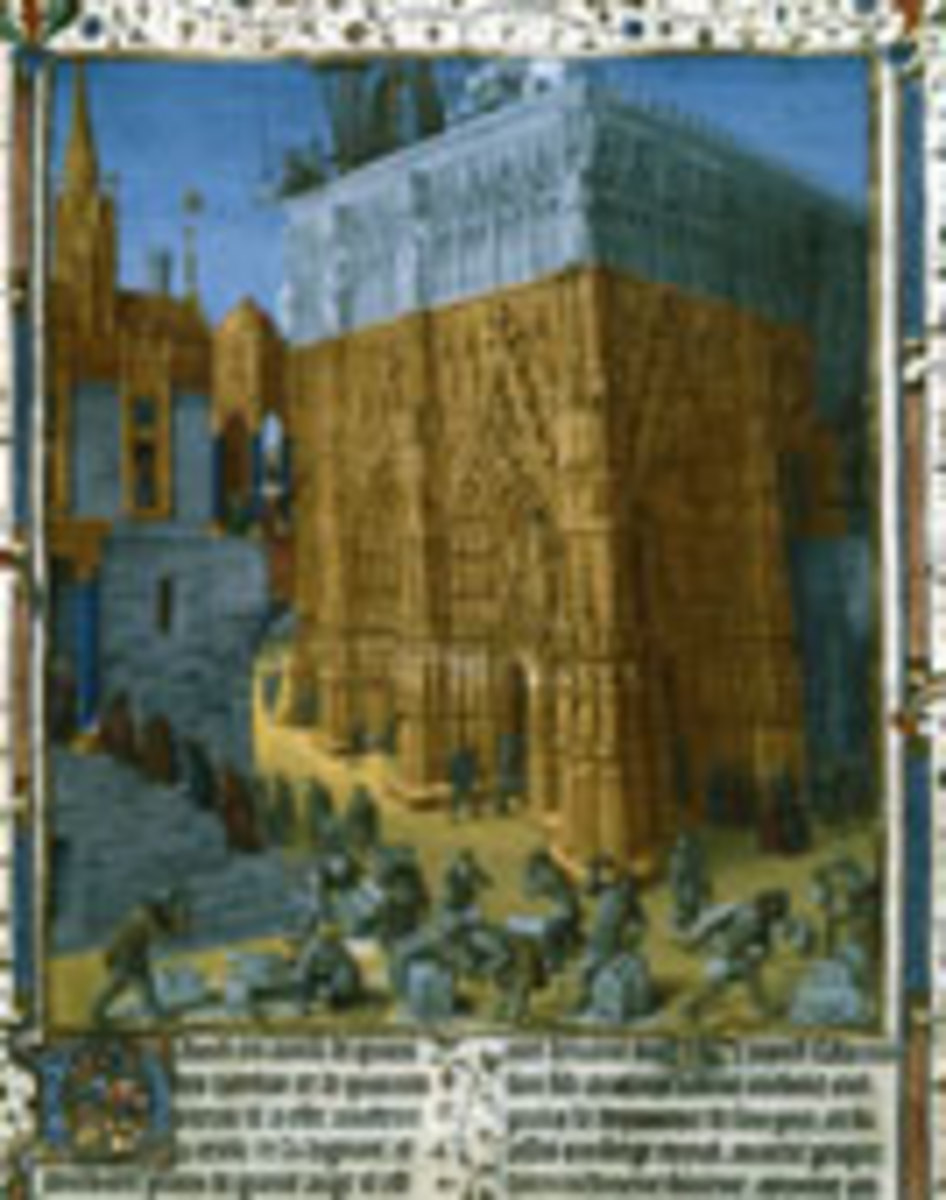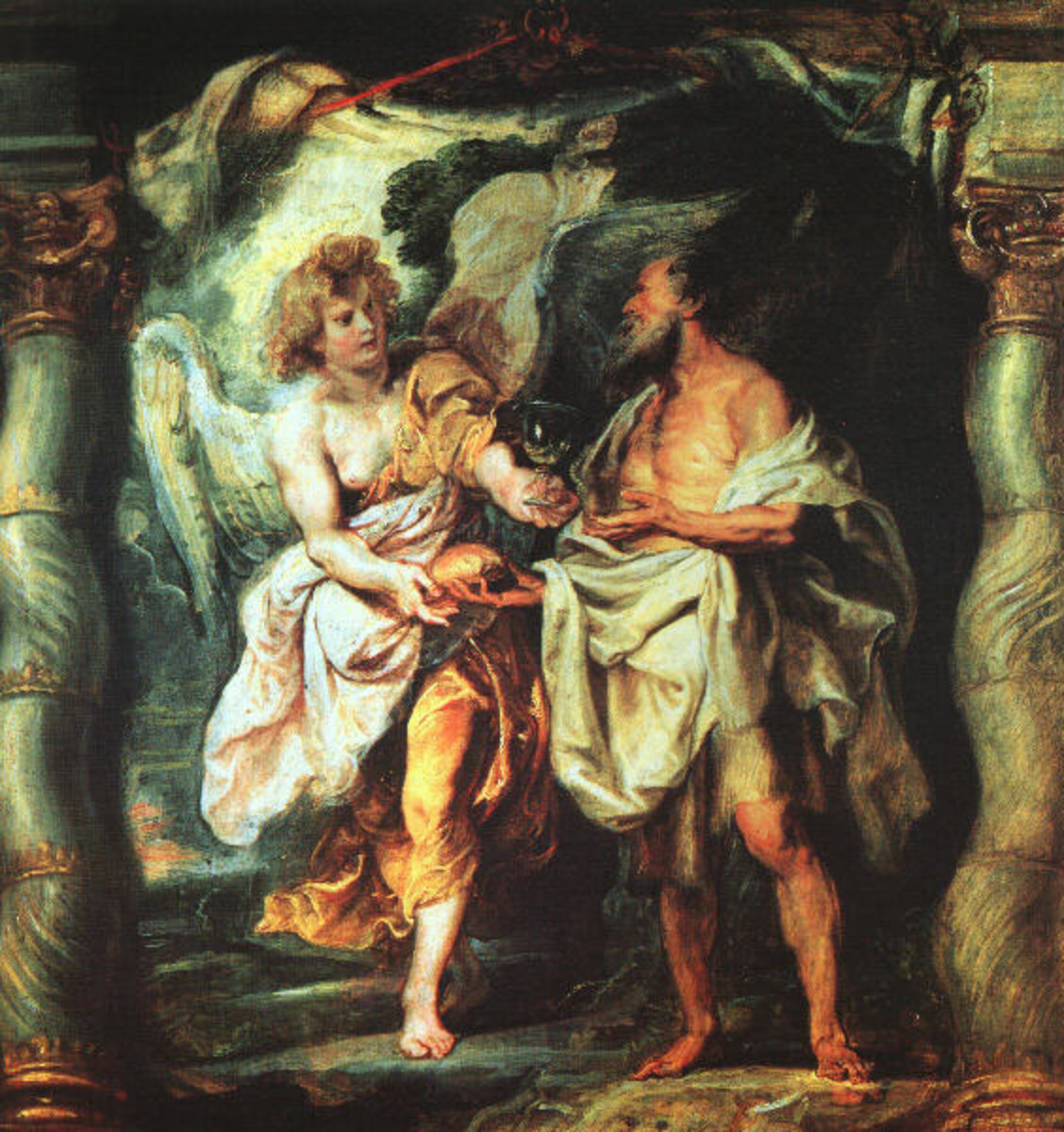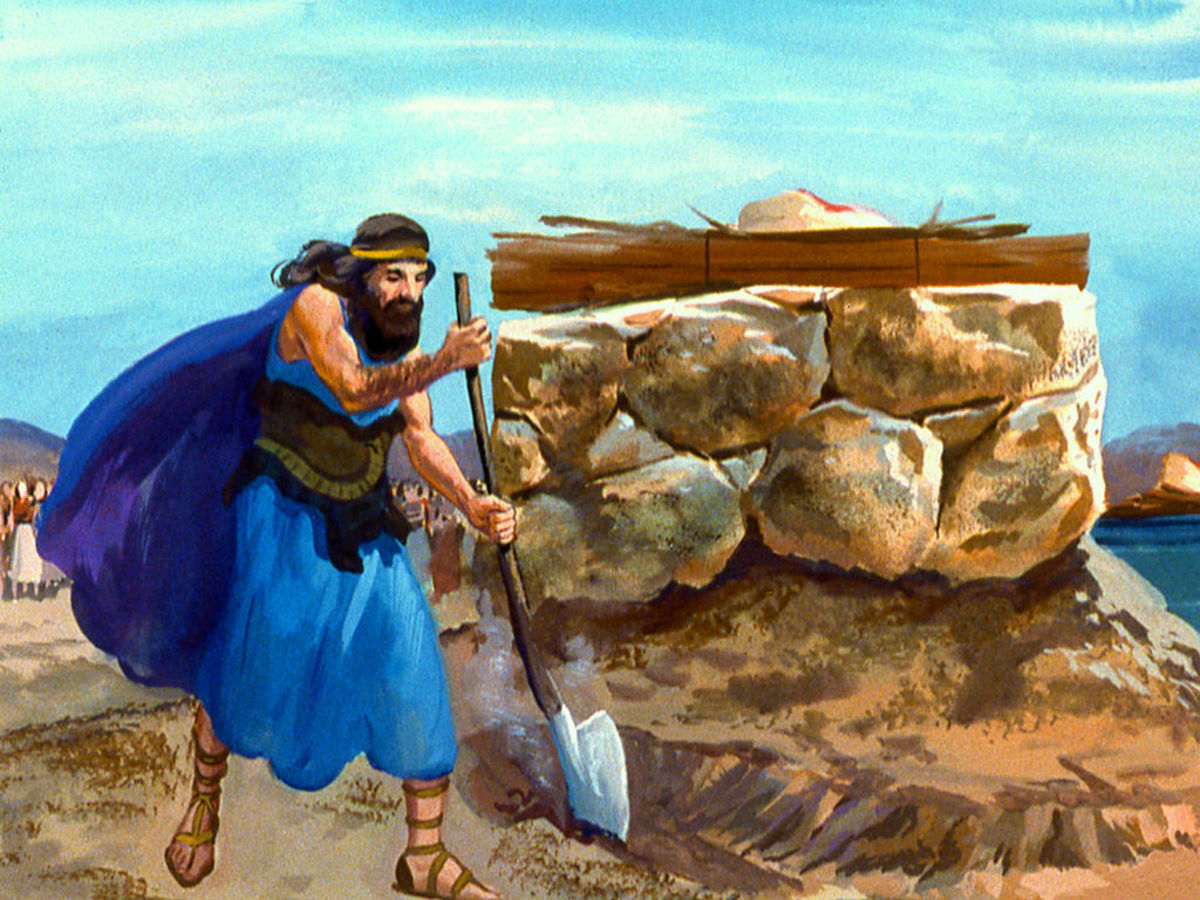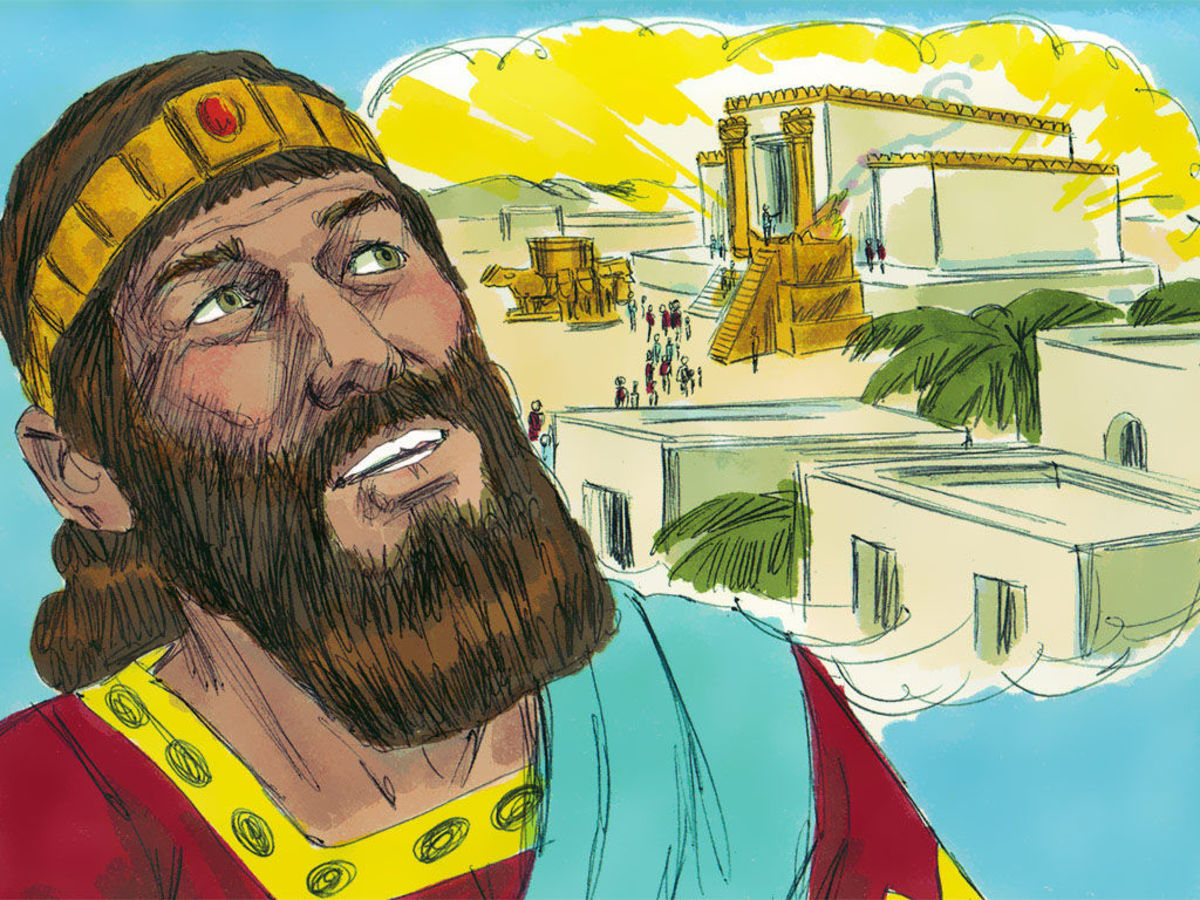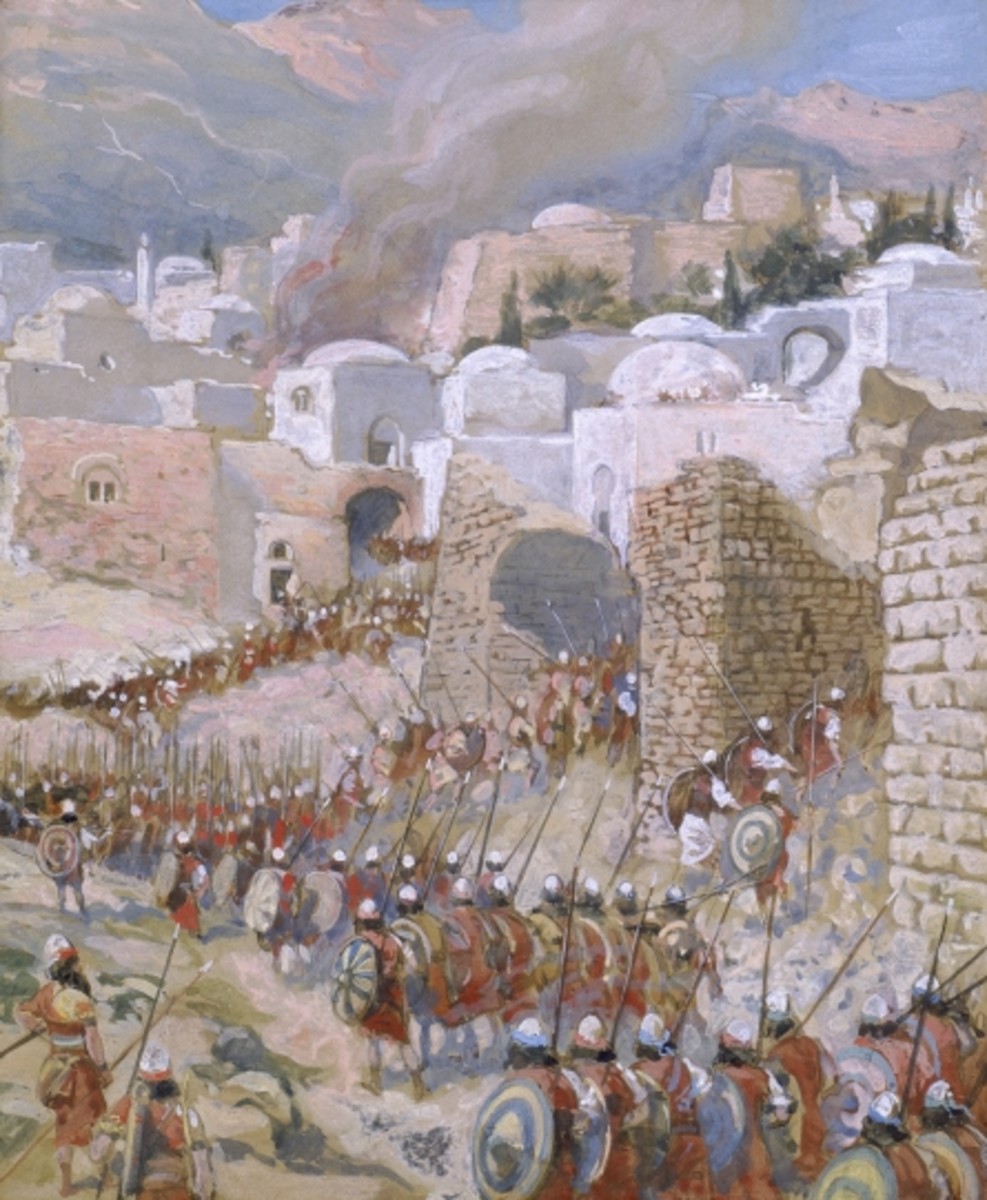Bible: What Does 1 Kings 20-22 Teach Us About Kings Ahab, Ben-Hadad, and Jehoshaphat?
King Ahab
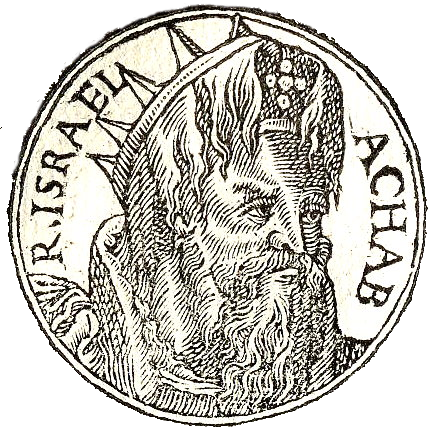
Next, the narrative recounts Ahab's military triumphs against Ben-Hadad, king of Syria (vv. 1-30), as well as his misguided compassion toward the one whom Yahweh had "appointed to utter destruction" (vv. 31-43).
Thirty-two well-supplied kings ally themselves with Ben-Hadad and attack Samaria (v. 1).
At first, they seem content to take only money and lesser family members as booty (vv. 2-3); however, when Ahab fully submits to their wishes, Ben-Hadad becomes bolder, ordering a house-to-house search to steal those things which the king of Israel treasured (vv. 4-6).
Ahab's consultation with his elders about these latest demands produces a letter of refusal to Ben-Hadad-- a rejection the latter does not receive too cordially.
In fact, the Syrian promises Ahab that he would reduce Samaria to a heap of dust (vv. 7-10).
To this threat Ahab retorts, in essence, "You have not won the war yet" (v. 11). This "in your face" challenge spurs on Ben-Hadad to take immediate action (v. 12).
Promising a great victory, the LORD through an unnamed prophet orders Ahab to send young leaders of the provinces against the Syrians (vv.13-14).
While Ben-Hadad and the others are imbibing, the Israelites with their seven thousand attack the overconfident Syrians and slaughter them (vv. 15-21).
However, as his army perishes, the king of Syria manages to escape (v. 20).
Syrian King
view quiz statisticsThe prophet informs Ahab that he has not seen the last of Ben-Hadad, and therefore should prepare to meet him in battle in the spring (v. 22).
As they lick their wounds, Ben-Hadad's servants surmise why they lost the battle: “It is because Israel's gods are gods of the hills, not gods of the plain (like ours)” [v. 23].
Thus, they advise Ben-Hadad to assemble another army and fight Israel again, this time in the plain (vv. 24-25).
That spring a vastly outnumbered Israel meets Syria in battle at Aphek (vv. 26-27).
Given divine assurance of victory, Ahab's forces kill one hundred thousand Syrian soldiers; an additional twenty-seven thousand die when Aphek's wall collapses on them (vv. 28-30a).
The Syrian king, however, finds temporary refuge in an inner chamber of the city (v. 30b).
[How did so many die from the collapse of the wall? Did the people live in it or near it?]
Acting upon reliable hearsay regarding Israel's merciful treatment of enemies, Ben-Hadad's servants don the apparel of repentance, and petition Ahab for their king's life (vv. 31-32).
When they realize their scheme will work, they bring Ben-Hadad to him and Ahab honors his enemy (v. 33).
The Syrian promises to return stolen lands to Ahab and allow Israel marketplaces in Damascus (v. 34a).
Israel's king foolishly makes a treaty with him and sends him away (v. 34b).
A son of the prophet then arranges a meeting with Ahab, but in a rather odd way.
By the word of the LORD, he commands a certain man to strike him; when the latter disobeys, the prophet tells him that a lion will soon kill him, and thus it occurs (vv. 35-36).
Another man, a wiser one (to be sure), obeys the son of a prophet, wounding him (v. 37).
Disguising himself, then, as an injured soldier who negligently let a prisoner escape, the prophet encounters Ahab and asks him to decide his case (vv. 38-40a).
When the king determines that the "soldier's" own words have judged him, the seer removes his bandage and announces Yahweh's judgment upon Ahab and Israel (vv. 40b-42).
Predictably, this news does not make Ahab’s day (v. 43).
Jezebel and Ahab
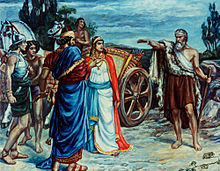
Jezebel and Naboth
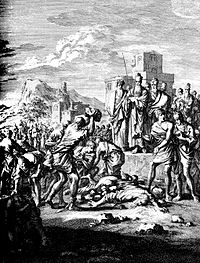
1 Kings 21
Ahab's self-esteem receives another jolt, as Naboth refuses to trade his inheritance to him for better land or the "fair market price" of his property. Naboth stands on principle, taking seriously the LORD's command not to sell the family plot (cf. Num. 36:7).
The king, on the other hand, having never regarded Yahweh's instruction, cannot accept Naboth's rebuff standing up (vv. 1-4).
When Jezebel hears Ahab whining about Naboth's reaction toward his offer, she chides him for having a conscience or for not knowing how to exercise his kingly power (vv. 5-7a).
Apparently possessing a seared conscience herself, the queen cooks up a deceptive scheme to acquire Naboth's land for her husband (v. 7b).
She sends missives in Ahab's name that order the elders of Naboth's city to proclaim a feast and seat the intended victim in a place of high honor (vv. 8-9).
Jezebel also commands them to hire two scoundrels who would charge her enemy with capital offenses.
Despite not having proven the charges, the elders should immediately stone the offender (v. 10); sadly, these "leaders" follow her instructions precisely (vv. 11-13).
Jezebel hears of Naboth's demise, relays this "good news" to Ahab, and encourages him to take possession of the land (vv. 14-16).
This murderous plot, however, does not escape the notice of the LORD.
Soon Elijah visits Ahab in Naboth's vineyard (vv. 17-18), and condemns the king (v. 19), his house (vv. 21-22, 24), and Jezebel (v. 23) to dishonorable deaths, because the king had "sold himself to do wickedness in the sight of the LORD" (vv. 20, 25).
Unexpectedly, Ahab humbly repents of his idolatry and other evil ways, and God temporarily spares him (but not his house) of calamity (vv. 26-29).
Jehoshaphat
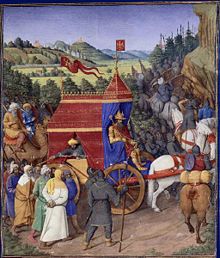
1 Kings 22
Three years after making his treaty with Ben-Hadad, Ahab finally decides to take Ramoth Gilead away from him (vv. 1-3).
Jehoshaphat the king of Judah pledges to assist his “brother” in battle (v. 4).
After considering his situation more thoughtfully, however, Jehoshaphat asks Ahab to inquire of the LORD (v. 5).
Ahab, therefore, brings in four hundred "prophets," which provide him their "rubber stamp" (v. 6).
Dissatisfied with their advice, the king of Judah seeks from Ahab a word from a prophet of the LORD (v. 7).
Reluctantly, he calls for Micaiah—a man whom Ahab hates because he never prophesies what he wants to hear (vv. 8-9).
In the meantime, the others put on a show for the kings, and their vote is unanimous: "Go, take Ramoth" (vv. 10-12).
Finally, a duly instructed, but not intimidated Micaiah enters Ahab's court (vv. 13-14).
When he parrots the same counsel as the others, Ahab recognizes that he is hiding the truth from him, so he commands the prophet to tell what he knows (vv. 15-16).
John MacArthur
False Prophet
view quiz statisticsUnshackled now to speak God's word, Micaiah counsels that Israel (without a shepherd at the moment) should return home (v. 17).
Ahab, of course, takes the prophet's word as bad news, and tells Jehoshaphat, "That's the kind of message that this fellow always brings me" (v. 18)!
The man of God reveals Yahweh's full determinate counsel, straight from the heavenly throne room itself.
God has allowed a lying spirit (speaking through the mouths of all of Ahab's prophets) to persuade the king to go into battle at Ramoth and there perish (vv. 19-23).
The false prophet Zedekiah slaps Micaiah and accuses him of lying (v. 24).
Undaunted, Micaiah declares that Zedekiah will know that he has spoken the truth when the latter is hiding from the enemy (v. 25).
Ahab decides to punish Micaiah with imprisonment until he returns safely from battle (vv. 26-27).
With his parting shot, the prophet stakes his calling as a man of God on the fact that Ahab would not return (v. 28).
On the way to Ramoth, Ahab tells Jehoshaphat his plan.
Believing that Syria would never attack the king of Israel, Ahab decides to disguise himself and go into battle, while allowing Jehoshaphat to put on his robes (vv. 29-30).
However, the king of Syria devises the opposite strategy: strike the king of Israel only (v. 31).
Thus, poor Jehoshaphat, clad in Ahab's garb, finds every enemy chariot driver pursuing him (v. 32)!
Good for him that the Syrians turn back when they see that he is not Ahab (v. 33).
On another front, a random arrow strikes Ahab between the joints of his armor, so he commands his driver to remove him from the fray (v. 34).
Ahab, standing up in his chariot, slowly bleeds to death while the battle rages on (v. 35).
At sundown, everyone returns to his own country (v. 36). Samaria becomes Ahab's final resting place and Ahaziah becomes king (vv. 37, 40).
[An interesting, final note appears in connection with Ahab’s death. Before his servants can wash out his chariot, dogs lap up his blood in fulfillment of God's word (v. 38; cf. 21:19).
The book of Chronicles contains more details about Ahab's reign (v. 39)].
Returning to his formulaic style of recording (see chapter fifteen), the author reviews the career of Jehoshaphat (vv. 40-50).
Reigning twenty-five years, this king of Judah ruled righteously and made peace with Ahab (vv. 41-44).
Further information about his life also appears in the book of Chronicles (v. 45), but the author includes a few more outstanding features in it before closing the book.
Jehoshaphat banishes the sexually perverted from the land (v. 46), and refuses to ally himself with Ahaziah, Ahab's son (vv. 48-49).
Finally, the king dies and Jehoram takes his place (v. 50).
Ahaziah lasts only two years as king of Israel; his character does not differ at all from his father's (vv. 51-53).
SUMMARY QUESTIONS
1. Speculate why godly David, a poor parent, had so little control over either Absalom or Adonijah.
2. Why does the prophet Nathan scheme with Bathsheba to force David to declare his successor?
3. What was the rationale surrounding grasping the horns of the altar?
4. Which of Jeroboam’s sins did many of Israel's kings subsequently follow?
5. Why does God not judge the prevaricating prophet for disobeying the word of the man of God who foretold the coming of Josiah?
6. Why did Abijah Jeroboam's righteous son have to die because of his father's sin?
7. Why did Elijah flee to Horeb after Jezebel threatened him?
8. How did the ravens supply bread for Elijah? What does the author mean by "bread"?
9. Did Solomon "gyp" Hiram, giving him worthless cities, or should we consider his actions merely shrewd?
© 2013 glynch1


